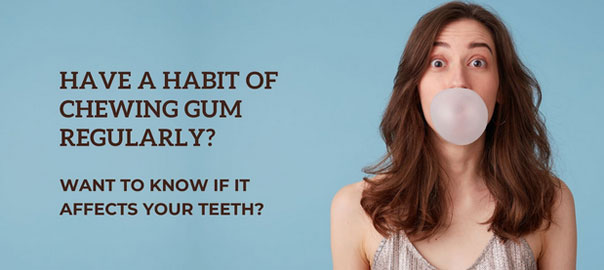
Can Gum Chewing Actually Benefit Your Teeth and Gums?
Perhaps many have been chewing gum since their childhood. According to some, it is only a pastime, freshening the mouth; others believe that some types of gum help dental health. Today we are going to check if it’s really true: does chewing gum help your teeth and gums? We go through possible benefits, what type of gum should be used, and the importance of good oral hygiene practice above gum chewing.
Advantages of Chewing Gum
- Saliva Production: Probably the most important effect of chewing gum is to stimulate the production of saliva. Saliva is vital in helping you have a healthy and clean mouth; it can neutralize acids, clean out particles of food from the mouth, and remineralize the teeth. Thus, by chewing gum, you stimulate the salivary flow that washes out dangerous bacteria and debris from your mouth.
- Plaque loss: The gum chewing sugar-free is said to discourage the formation of plaque. Plaque is an adhesive layer formed on a person’s teeth and gums consisting of harmful bacteria. A higher stimulation in the form of chewing will encourage the production of saliva that will wash out and dislodge plaque from the surface of a tooth.
- Strengthening Tooth Enamel: Its calcium composition, and phosphate, have been proved to add up during the remineralising process of the enamel of the tooth. Rebuilding weakened teeth, deficiently weakened teeth, will build resistance towards the acid attacks. That may help in reducing the amount of decay of the tooth.
- Fresh breath: Bad breath can be a pretty embarrassing condition. But having chewing gum in a fresh flavor may momentarily resolve the issue. Meanwhile, masking the odor, it still stimulates the flow of saliva, which cleans out bacteria and food residue responsible for bad breath.
Which one is the right gum?
Hence, the appropriate kind of chewing gum has to be selected in order to get the maximum benefit from oral health. Some of the things one needs to look for in the selection process of gum in order to avail dental health benefits have been listed below:
- Sugar-free: Gum must be sugar-free to avoid unnecessary sugars from being introduced into the mouth which accelerate tooth decay.
- ADA Seal of Acceptance: The ADA Seal of Acceptance must be on the packaging of the gum. The ADA Seal of Acceptance is a mark that indicates that such a gum has satisfied certain standards about its safety and effectiveness.
- Xylitol: The healthy ingredient in the mouth, xylitol is a sugar substitute in the chewing gum. Chewing xylitol gum inhibits the growth of those bacteria that cause cavities. end
An oral boon, gum chewing surely cannot be a substitute for any good dental hygiene practice.
Pre-conditions include;
- Brushing and flossing every day: Dental cavities occur due to plaque in most cases, and the only way through which teeth can remain clean, devoid of plaque is through brushing and flossing. The two cannot be substituted by the former.
- Routine dental checkups: Give your dentist scheduled appointments so that he/she can monitor your oral status and find any issues that may arise.
- Do not over-chew the gum: Chewing on the gum excessively can be pretty strenuous to the TMJ, and it may cause TMJ disorders. Just be moderate and avoid doing it excessively.
Conclusion
Gum chewing has proven to have some benefits to oral health. However, it is not a replacement for proper oral hygiene. The stimulative action of chewing gum increases saliva production, fights against plaque, fortifies the enamel of the teeth, and freshens breath.
However, it must be sugar-free gum and good habits such as brushing and flossing should also be followed. And regular dental visits must also be followed. So, by chewing gum combined with an all-round oral care routine you can optimize dental health. And the benefits that this habit can avail for you.
Leave a Reply
Leave a Reply
Explore More Similar Posts
Explore More Blogs


Leave a Reply